- From Faith Current: “The Sacred Ordinary: St. Peter’s Church Hall” - May 1, 2023
- A brief (?) hiatus - April 22, 2023
- Something Happened - March 6, 2023
Yes, even “Magical Mystery Tour.”
Since I’ve long and loudly proclaimed my love for the MMT LP, I look forward to any and all hullabaloo regarding the re-release of the film. Here’s a piece in The Guardian touting the upcoming Arena programme “Magical Mystery Tour Revisited.” (When it is rebroadcast in America, it will of course be “a program.”)
The apparent angle of the documentary—that MMT was an affectionate send-up of rationing-era Britain—is something that I’ve always sensed in the film but never had the good sense to write down. This vein was being mined since the group reconvened to record “Strawberry Fields” and “Penny Lane” in late 1966. Or maybe it began with “Eleanor Rigby,” or even “In My Life”? From Anthology to Live at the BBC to navel-gazing fan sites like this one, The Beatles have become literature and history so comfortably in part because The Beatles were obsessed with literature and history.
Only adults have the ability to look back, and only mature talents can do it well. The periods directly before and after 1966-67, exuberant and interesting and enjoyable as they are, lack this context, and feel much thinner to me as a result. In the era of the mania, they were too young to be about anything but themselves and the overwhelming things happening at that moment; after Brian’s death, they absorbed the curdled narcissism of that era. Even as solo artists, their highpoints are often works with a nod to history. All Things Must Pass—POB—”I’m the Greatest”—and so forth.
We are as far in years from The Beatles as they were from World War One—which is to say, not far at all. Thirty years of war, twenty of poverty, and then, life returns. Sex and speed and color and experience; all that hippie symbolism of “NO” turning to “YES” becomes a lot less symbolic if you watch Andrew Marr’s series on the Making of Modern Britain.
YES there is meat today.
YES we can have sex.
YES you can try to make a better life.
YES there is a future.
Out of grimness The Beatles made joy; raised in emotional and physical repression, they chose freedom. John, Paul, George, and Ringo weren’t the sole authors of Swinging London, but they played a central role in it, and Swinging London was the first good news to happen in Europe since 1914. So much of psychedelia was an attempt to close that psychic wound, which is why so much of it is based on Victoriana and Art Nouveau.
When I see The Beatles, I see art’s ability to conjure abundance, which is the only real magic I’ve ever found. But even as they were helping to turn the page, John, Paul, George and Ringo were nostalgic. Of course they were—and of course we are for them.



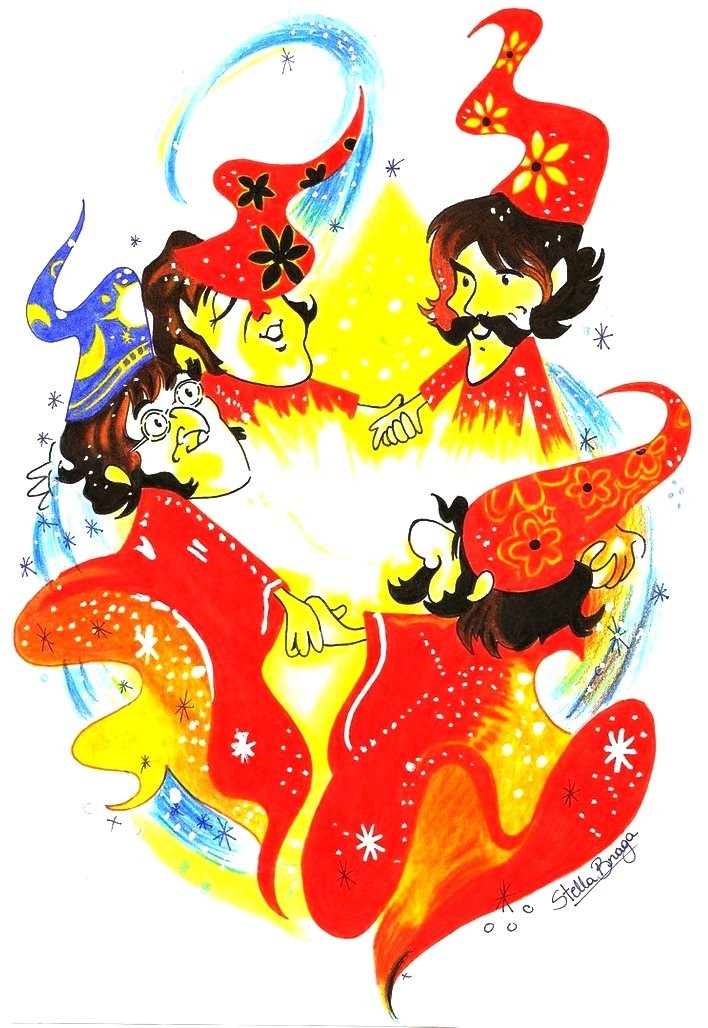
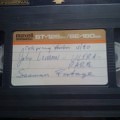

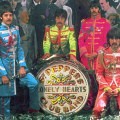
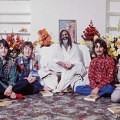
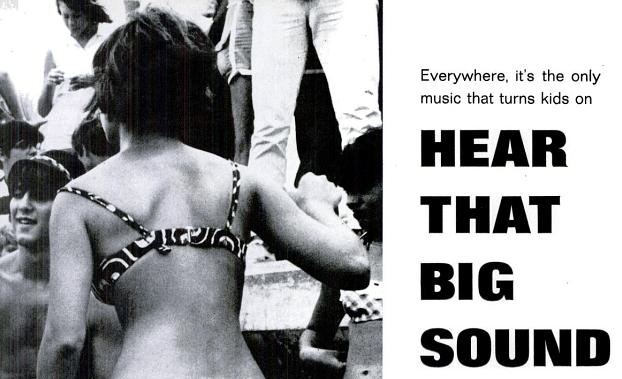

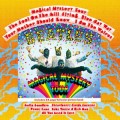

art’s ability to conjure abundance
I’ve been trying for years to find a way to say just that, and you toss it off in five words in the middle of a sentence. Admiration.
Devin, I’m laughing so hard right now–genuinely–because everything I’ve tried to write for the last six weeks has felt like crap to me! I’ve even wondered whether it was time for me to stop altogether.
So, thanks!
“Just when I get out, they PULL ME BACK IN!”
I’m really looking forward to seeing the Blu-Ray of MMT. I don’t care if the plot wanders (or if there’s no plot at all). Maybe it is just the Beatles’ arthouse depiction of an acid trip, or maybe it’s just a mess, but it’s got some great moments. And it’s got such a wonderful WTF quality about it.
I’m glad they did the movie for the same reason that I’m glad that Revolution 9 is on the White Album — because both MMT and Revolution 9 introduced experimental art to a mainstream audience that would never have watched it otherwise, and only did so because the Beatles’ name was attached.
If the Web had existed when MMT was first shown on television, I can just imagine how the snide, repressed haters who dominate sites like the Daily Mail would have gone crazy with annoyance and disdain after watching MMT. And anything that threatens, discomforts, confuses, and pisses off those folks works for me. 🙂
— Drew
That is such a good point about the Andrew Marr TV series which I saw earlier this year. It gives so much context to this era and I found that knew much less about it than I thought I did. (Although, being an American, I suppose that’s not too surprising.)
-Mark
I don’t know why you have to dislike one record to say that you like another one.
SCBrain, I don’t follow you exactly–just MMT love on this post.
If you’re talking about my dislike of the White Album, do keep it in perspective. Beatles music is awesome; I just prefer Mom’s meatloaf over her mac ‘n’ cheese.
“White has some superb tracks and I enjoy those, but it’s one long bad vibe for me.” : I don’t know why you have to dislike one record to say that you like another one.
“White is pop music consciously attempting to be art” – One of the most endearing aspects of the Beatles is their self-conscious aspiration to grow beyond pop into art. Why this should be a criticism, I don’t know. And it doesn’t really hold up too well: I Am The Walrus, for instance, belongs in the top 5 of the list of their most self-consciously arty music, but it’s stiff competition when considering their output since mid-1966. It’s all pretty arty after Tomorrow Never Knows.
My point is: ostensibly lots (or at least some) of the people who read this blog like the White Album the best. Why use that album as the foil against which MTT is defined, so that the reader has to either a) reject your point of view, or b) lower his/her estimation of one beloved record in order to go along with the argument? Why make this a zero-sum game?
@SCBrain, I think you’re taking this a bit more seriously than I am, but to answer your question…
The reasons to compare MMT and White are several:
a) MMT has largely been dismissed as filler, or at best junior-varsity Pepper. I don’t agree with that. White, on the other hand, regularly makes lists of the Top 10 LPs of all time–in spite of its acknowledged flaws–and is often considered to be The Beatles being “honest,” “real,” or “authentic.” The subtext here is that the Summer of Love was a fantasy, but bloody 1968 was truth. I disagree on all counts, on both the music, the ranking, and the history.
b) White followed MMT, and Lennon particularly seemed to push the line that White represented a conscious rejection of MMT-style music.
c) MMT is, to me, the road not taken, a really interesting, rich vein both of HOW they made music, and the kind of music that was made, that was discarded mostly for reasons of changing fashion.
d) Within the mythology of the group, MMT music is defined by a commitment to the group dynamic; White is famously “Me and a backing group, Paul and a backing group.” Now, Devin has argued convincingly that White IS more a group effort, but in my mind, White is the beginning of the breakup, where MMT spans the period where the group most effectively balanced individual talent and group effort.
So for all these reasons, I think it’s both interesting and valid to compare MMT and White. I prefer MMT; you prefer White. Many, if not most, Beatles fans probably prefer White. Which is why it’s perhaps interesting that I–as somebody who thinks about The Beatles a little too much–like MMT better.
It’s not a zero-sum game to me, and hope not to you. There are not so many Beatles LPs out there!
Don’t worry, SCBrain—there’s enough White Album love on the blog elsewhere! Devin has compared it to Moby Dick. The alpha and omega. And I agree.
Comparison is all good – nothing in the realm of art appreciation should be off limits, of course. But a lot of rock criticism makes a mistake (see Bangs, Christgau, etc), I think, when the critic implies that for X to be understood as good, then we need to revise our opinion of Y downward.
This is not to say that MMT or WA is better or worse than the other – but rather to say: why does one have to suffer for the other to be good?
As for taking things seriously: guilty, but the blog subtitle indicates that this is a place for people who think about this stuff too much…
SCBrain, I agree with you about comparisons tending toward invidiousness (see my criticism on this blog of Robert Rodriguez’ book “Revolver” for building up that album by knocking “Pepper” — the knocking being, in my opinion, unnecessary and distracting from the main business at hand).
To me it depends on degree and motivation. We’re all going to like some things better than others, and it’s perfectly fair to say why. We can believe that one album is genuinely better than another, and say why. But in too many critics’ hands the knock-it-down comparison is used without enough thought or nuance.
But then, I love “Magical Mystery Tour.” And “Ram.”
Dear Nancy,
I like Ram a lot too. When I was a kid, I didn’t have many of the solo records, and I was scared off of Ram because of the bad buzz surrounding it, conveyed to me in Schaffner’s _Beatles Forever_. All of those rock critics who savaged Ram, Jon Landau foremost among them, because it didn’t flatter them did us all a disfavor.
I tend to think of Pepper and MMT as the great double album that never was. Of course, many people, including George Martin, tend to think of WA as the great single album that never was. But I’m with Macca – “It’s the bloody Beatles White Album, shut up!” 😉
All three I consider the ‘acid’ albums and I think of them as different stages on the psychedelic journey. The White Album isn’t quite the ‘comedown’ but the beginning of the ‘stop the ride, I wanna get off’ phase 😉
SCBrain, if you look through the HD archives, you’ll see that my love for “Ram” can hardly be overstated, and that I’m with you 100% on that sadly influential Landau review.
On the Pepper/MMT front, I’m thrilled that Chicago’s mutating cover band, Tributosaurus, will be doing a show this month featuring all of both albums, with a full orchestra! (I call Tributosaurus is “mutating” because they cover many different bands. They’re exacting about getting the music to sound right; they don’t dress up or try to act like the bands they cover.)
Info, for those interested, here:
http://www.tributosaurus.com/home.cfm
As a staunch defender of and believer in White, I get the twitch when folks knock it. But SCBrain, what your interesting last post here points out is that you, just like Michael and myself, attach certain meanings and values to the record because of how you construct the history around it. What I hear as a magnificent chaos, Mike hears as lack of discipline; what I hear as a fight to stay alive as a group, Mike hears as the death of shared vision; what I hear as an engaged confrontation with frightening worlds both inner and outer, Mike hears as self-indulgence and narcissism. We’ll never agree, but I can respect his take because it comes out of, not his anus, but an informed and passionate reading of all the Beatles history, sociocultural history, and other history that leads up to White, and even more importantly, away from White.
To your originating point, it’s perfectly valid to compare one thing to another and make a relative valuation on that basis. Criticism–whether the thought-out, long-gestated, well-articulated kind practiced by a professional writer like Mike, or the offhand kind each of us throws out over beers–is not possible without the frequent deployment of relative judgments. Critical thought, period, is not possible without it.
Not everything is equally good, let alone great, and it robs a word like “great” of meaning if the great thing is presumed to stand no higher than its neighbors. And it doesn’t really matter how many readers of this blog do or don’t like White; none of us writing here have to take anyone else’s feelings or opinions into consideration when stating our own, except, if we are so inclined, in an academic or instrumental way (as point of departure, useful foil, etc.).
Where I feel you totally, SCBrain, is that plenty of critics employ the tear-down-to-build-up gambit cause they got no better ideas, or any real sense of proportion (forget shame). Even great critics do it from time to time. When Keith Moon bit the big stick, Greil Marcus wrote his obit in Rolling Stone. He said something to the effect that Ringo’s drumming on “Ticket to Ride” was as far as most drummers were able to go down Moon’s road–though for Moon, Marcus said, that performance would have been considered not a triumph but a collapse. That always made me seethe, the inflating of Moon’s already swollen legend at the gratuitous expense of a simply magnificent Ringo performance in a song whose blazing sophistication was years beyond the Who’s reach at that point, and in any case would have been destroyed by a less disciplined hand than Ringo’s.
So while I agree with you in the abstract, SCBrain, I insist that there are nuances to everything, and there are obnoxious and non-obnoxious ways of comparing one thing with another and finding one of them lacking. “Obnoxious” means without care, without context, without consideration of all the “Yes, buts” that challenge an intelligent listener and sensitive thinker, which is what Mike is.
I’ve just watched MMT again and it’s confirmed to me what I remembered/suspected – it is a wonderful little film.
I think there’s a case of the Emporer’s New Clothes in reverse where MMT is concerned. Everybody has heard how it was panned and is considered the first Beatles’ ‘failure’ so it’s always viewed with an over-zealous magnifying glass scanning for its flaws. But if you love the Beatles and what they stood (stand?) for, it’s an absolute joy.
It seems a shame – and completely incongruous – that the judgment of a conservative, mainstream audience (Boxing Day peak time viewing) has held sway up to now.
I hope the re-release carries a warning: ‘Contains scenes likely to cause offence or annoyance to non-Beatles fans and squares’.